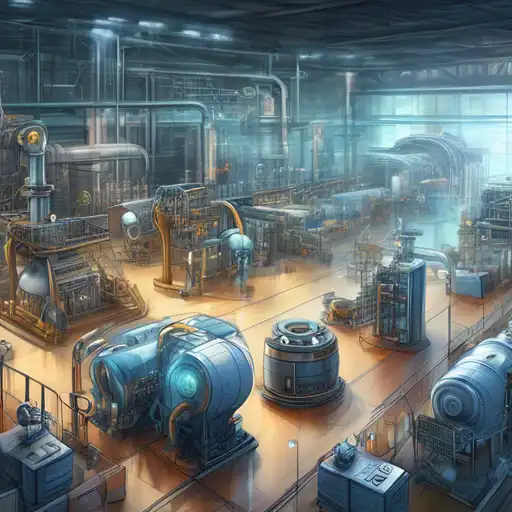The Transformative Role of IoT in Industrial Automation
The advent of the Internet of Things (IoT) has ushered in a new era for industrial automation, transforming traditional manufacturing floors into smart, interconnected ecosystems. This integration of IoT technologies is not just enhancing operational efficiency but is also paving the way for unprecedented levels of productivity and innovation.
Understanding IoT in the Industrial Context
At its core, IoT refers to the network of physical devices embedded with sensors, software, and other technologies aimed at connecting and exchanging data with other devices and systems over the internet. In the industrial sector, this translates to machines and equipment that can communicate in real-time, leading to smarter decision-making and streamlined processes.
Key Benefits of IoT in Industrial Automation
The impact of IoT on industrial automation is profound, offering several key benefits:
- Enhanced Efficiency: IoT devices enable real-time monitoring and control of industrial processes, significantly reducing downtime and improving efficiency.
- Predictive Maintenance: By analyzing data collected from sensors, companies can predict equipment failures before they occur, minimizing unplanned downtime.
- Energy Savings: Smart sensors can optimize energy use, leading to significant cost savings and a reduced environmental footprint.
- Improved Safety: IoT technologies can monitor hazardous conditions and alert workers to potential dangers, enhancing workplace safety.
Challenges and Considerations
Despite its benefits, the integration of IoT into industrial automation is not without challenges. Issues such as data security, interoperability, and the need for skilled personnel must be addressed to fully leverage IoT's potential.
The Future of Industrial Automation with IoT
As we move towards Industry 4.0, the role of IoT in industrial automation is set to grow even further. With advancements in AI and machine learning, the possibilities are endless, from fully autonomous factories to customized production lines that adapt in real-time to changing demands.
For businesses looking to stay competitive, embracing IoT in industrial automation is not just an option—it's a necessity. By leveraging the power of connected devices, companies can unlock new levels of efficiency, productivity, and innovation.
Discover more about how smart manufacturing is shaping the future of industry, or explore the benefits of predictive maintenance in reducing operational costs.
